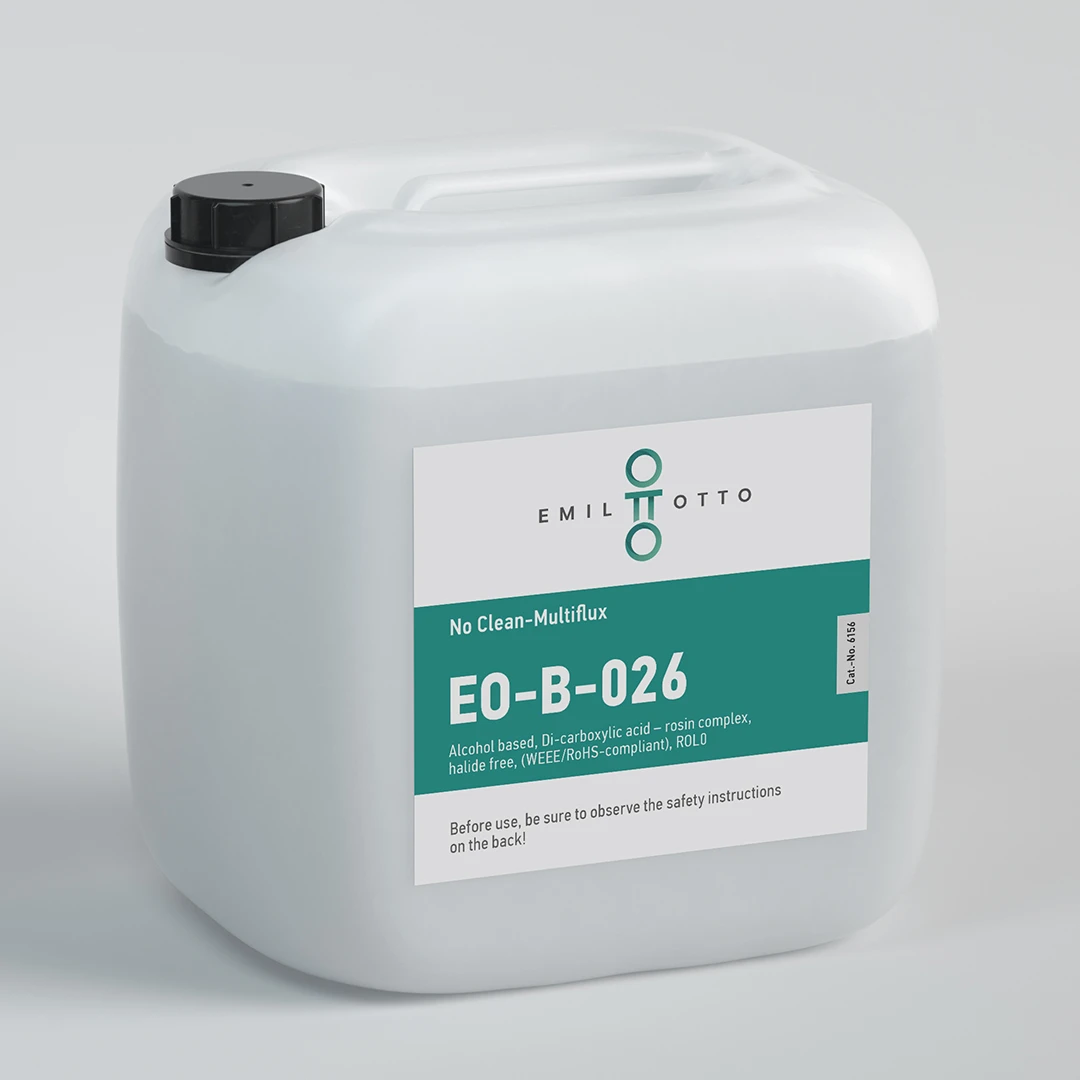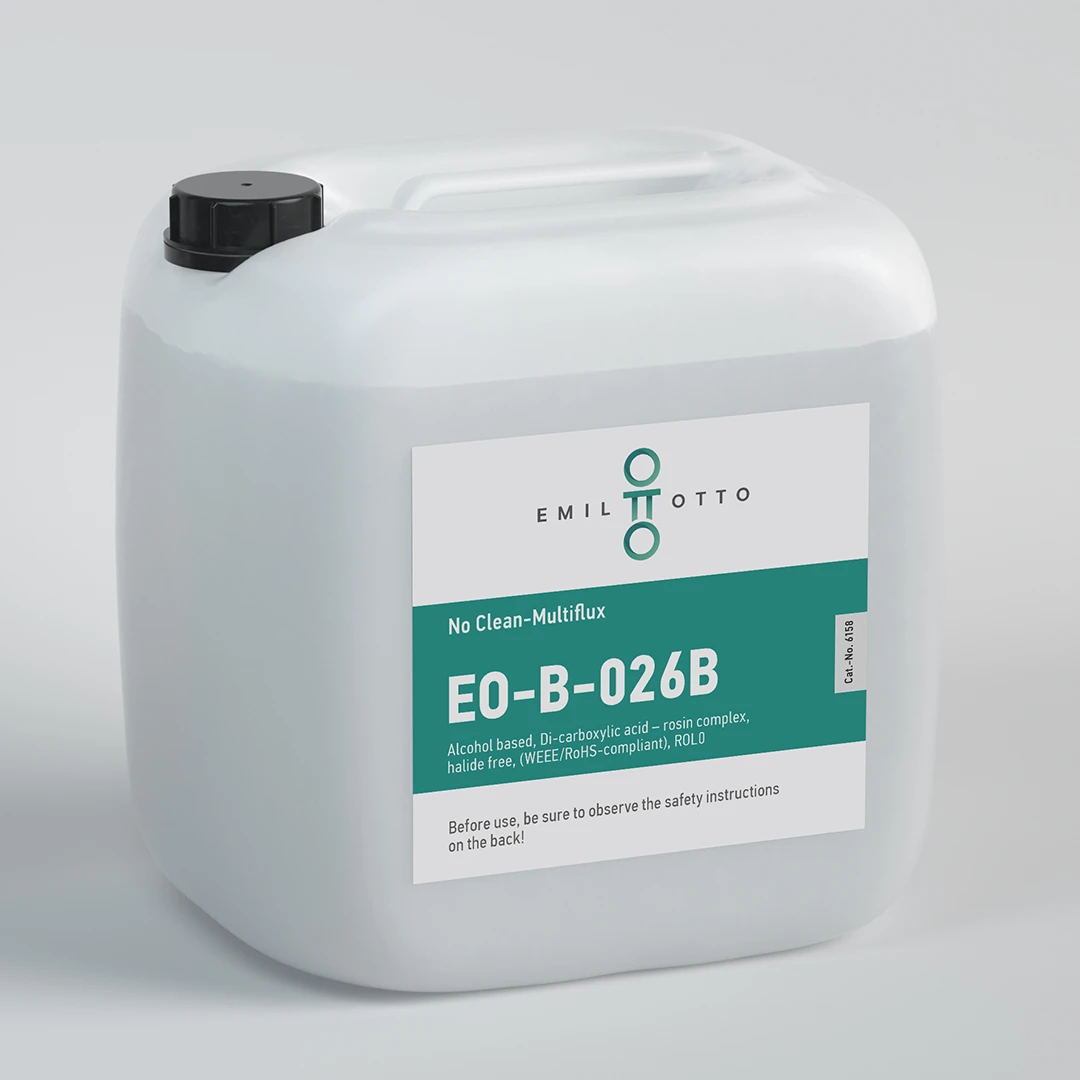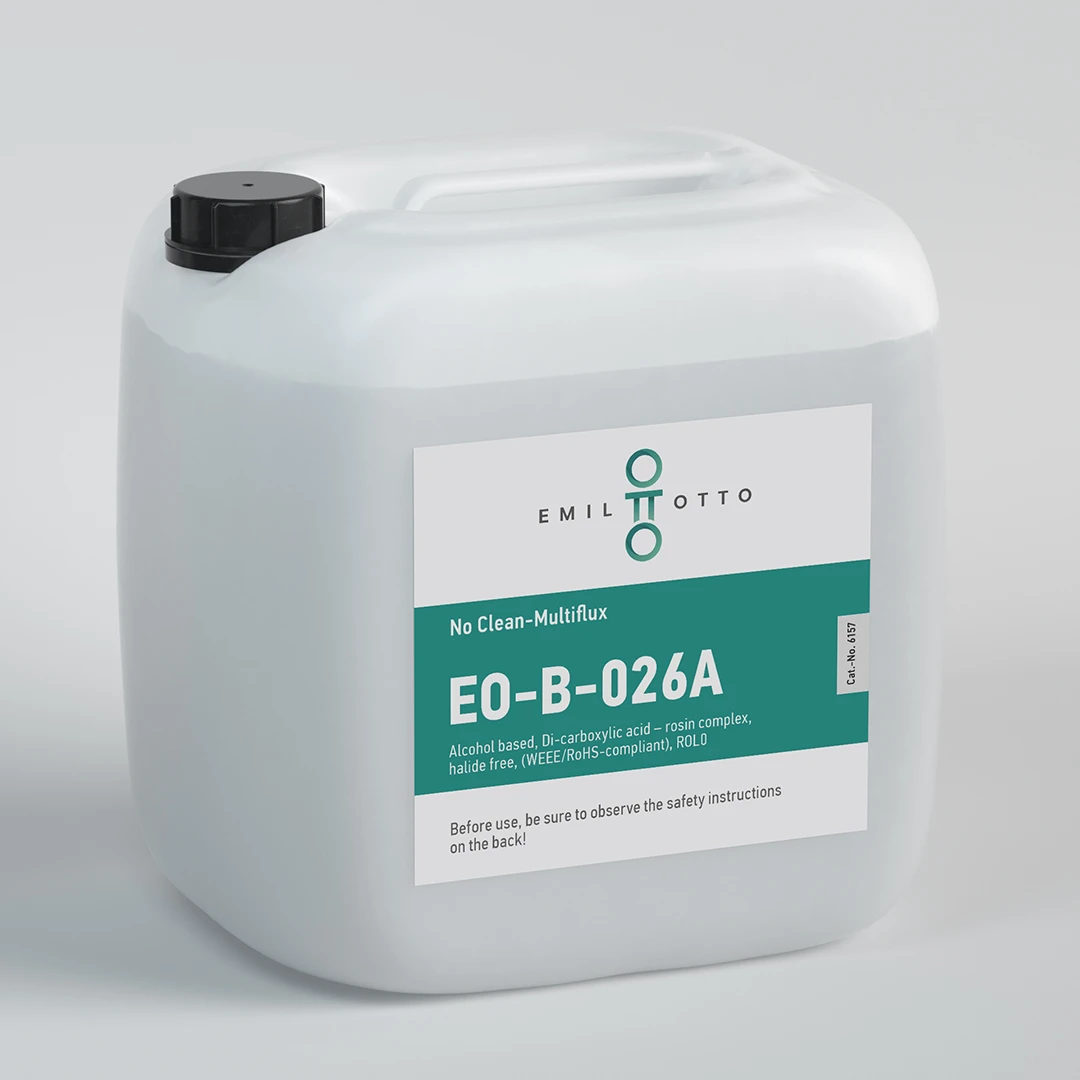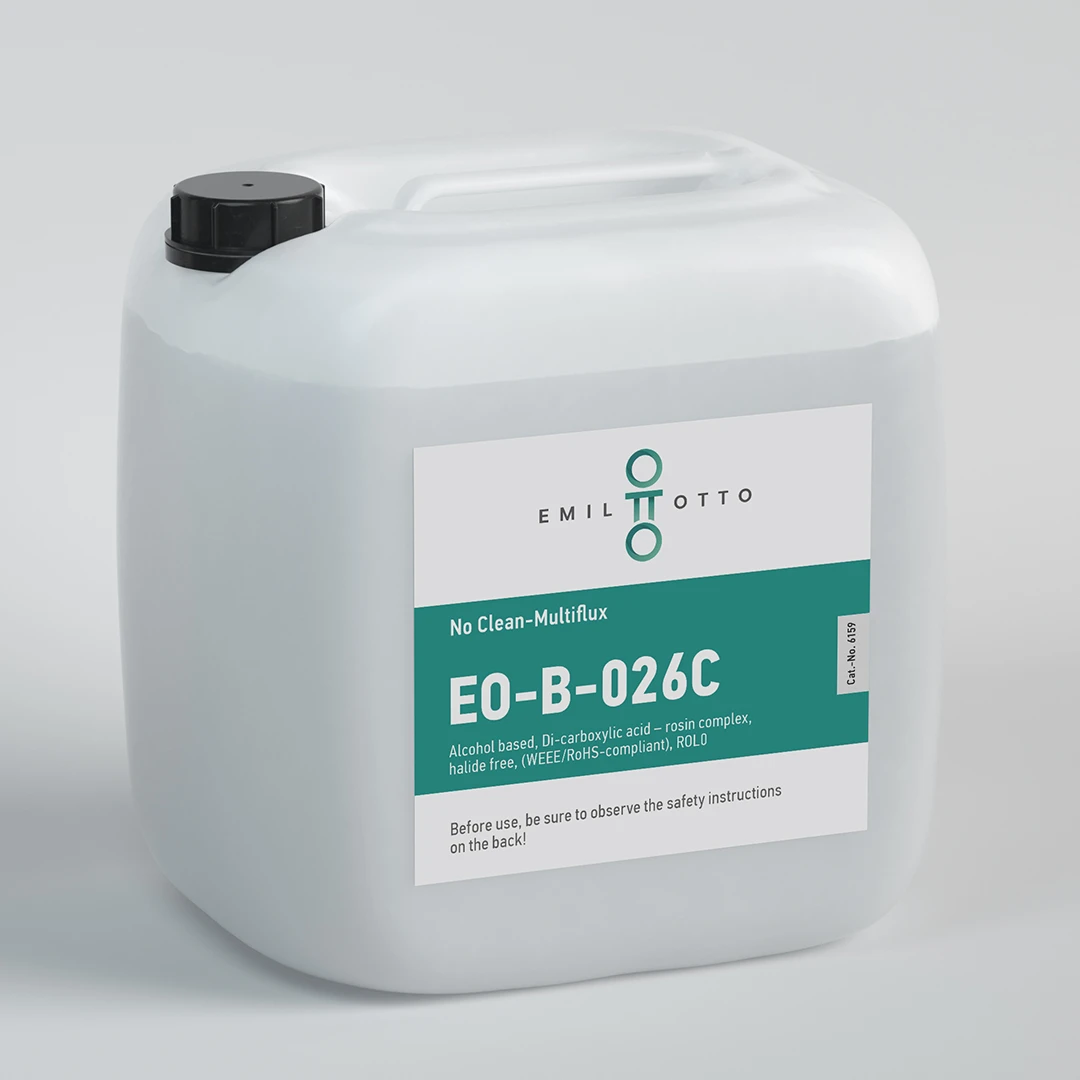Fluxes classified as ROL0 fluxes contain colophonium as a resin component. The new flux series EO-B-026 A – C are ROL0 fluxes of the latest generation. The fluxes are high-performance NO CLEAN fluxes based on alcohol with a di-carboxylic acid activator complex and colophonium. These fluxes have been developed for the selective and wave soldering process, as well as for dip soldering and wire harness tinning.
‘We are seeing increased demand for ROL0 fluxes, particularly from Eastern Europe and North Africa. For this reason, we have decided to expand our portfolio in this regard and meet the increased demand.’
Markus Geßner, Marketing and Sales Manager at Emil Otto GmbH
The new flux is available with different solid contents: EO-B-026 (5%) and the variants A (2%), B (3%) and C (4%). All versions are characterized by a wide range of applications and very good soldering properties, particularly in terms of penetration and wetting. Despite the higher solids content, the flux is virtually residue-free. The process window shows very high thermal stability and very good activity over a very large interval, especially with OSP and ENIG soldering surfaces. The use of colophonium brings further positive properties.
Colophonium helps the solder to spread evenly and improves the connection between the component and the PCB. Colophonium also prevents oxidation of the solder joints during the soldering process, resulting in reliable and stable connections. Compared to more activated fluxes, colophonium minimizes the risk of corrosion at the solder joints. After soldering, it leaves hardly any conductive residue, which reduces the risk of leakage currents or shorts. Furthermore, colophonium remains effective even at higher temperatures and thus enables stable process control. These properties make colophonium-based ROL0 fluxes particularly suitable for sensitive electronic assemblies.
EO-B-026B (multiflux)
Wave, selective and manual soldering, strand tinning
No Clean-Flux, alcohol-based
Di-carboxylic acid-resin complex, halide-free (WEEE/RoHS compliant) [OPS compatible]
Type ISO 9454: 1131 // DIN-EN 61190-1-1 (acc. to J-STD-004): L0 (IPC : ROL0)
EO-B-026 (multiflux)
Wave, selective and manual soldering, strand tinning
No Clean-Flux, alcohol-based
Di-carboxylic acid-resin complex, halide-free (WEEE/RoHS compliant) [OPS compatible]
Type ISO 9454: 1131 // DIN-EN 61190-1-1 (acc. to J-STD-004): L0 (IPC : ROL0)
EO-B-026A (multiflux)
Wave, selective and manual soldering processes as well as cable assembly
No Clean-Flux, alcohol-based
Di-carboxylic acid-resin complex, halide-free (WEEE/RoHS compliant) [OPS compatible]
Type ISO 9454: 1131 // DIN-EN 61190-1-1 (acc. to J-STD-004): L0 (IPC : ROL0)
EO-B-026C (multiflux)
Wave, selective and manual soldering, strand tinning
No Clean-Flux, alcohol-based
Di-carboxylic acid-resin complex, halide-free (WEEE/RoHS compliant) [OPS compatible]
Type ISO 9454: 1131 // DIN-EN 61190-1-1 (acc. to J-STD-004): L0 (IPC : ROL0)
Available as a ready-to-use flux, as a concentrate and as a flux gel
‘Flux gels are often used for rework on assembled PCBs. In the past, it was often necessary to use fluxes for manual and repair soldering. These contained other activators that were used for series production. The new flux gels we have developed are based on standardized activators that are contained in the existing electronic fluxes, such as the new EO-B-026. We are therefore the only manufacturer to offer products on an activator basis, from the flux concentrate to the finished flux to the flux gel.’
Markus Geßner
All flux variants can be purchased ready-to-use, as a concentrate or as a flux gel.
Uniform activators avoid cross-reactions that can occur when using different activators from different manufacturers.




